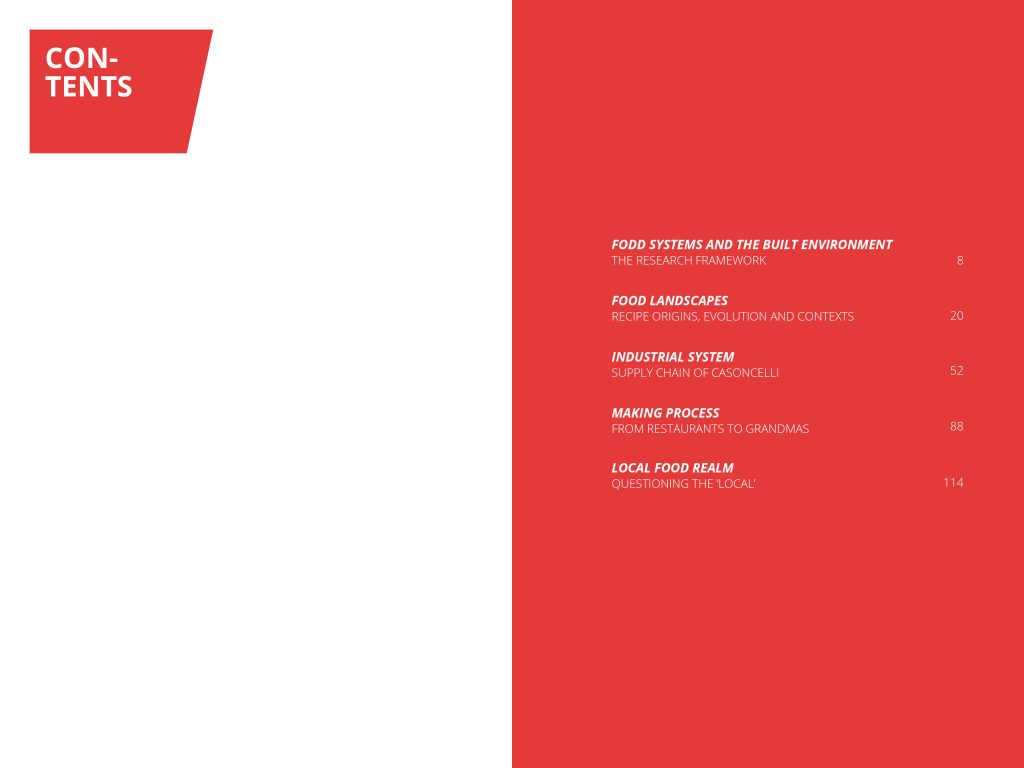Food is a multifaceted topic. It involves cultures, places, atmospheres and traditions, and is embedded in many aspects of people’s lives. The quality of the food we eat and the ways in which it is produced and procured have a direct bearing on both our physical and mental health. The sustainability of the agricultural and marine habitats from which our food is sourced is therefore of primary importance today.
Food creates narratives, shapes environments, and frames experiences. However, besides this almost romantic view, food is regulated by a series of very rigorous processes and activities enabled by well defined infrastructures, spaces, and machines. The journey of food products from farms to tables is what we usually refer to as ‘food system.’ Food systems are in fact the result of very complex interplays between processes, people, and products, and can be divided into distinct phases: 1. farming/harvesting/production, 2. processing, 3. distribution, 4. marketing and retailing, 5. consumption, and 6. waste management.
This research, part of a collaboration between REAL and the University of Bergamo, looks at the local food system as a way to understand the complexity of the city, highlighting problems and issues as well as unveiling hidden qualities. The traditional dish of casoncelli is used as a case study in Bergamo and as a research strategy to: a. question the concept of ‘local food’, b. investigate the relationship between food and cultural identity, c. discover the role of food in shaping the built environment, d. study the implications of the food supply chain at economic, social, and urban levels. The ultimate objective of this work is to highlight the role of local food in articulating qualities, narratives, and experiences in the City of Bergamo and in its territory. This research also helps better understand the relationship between food, spaces, and people in Bergamo for meaningful design interventions.










